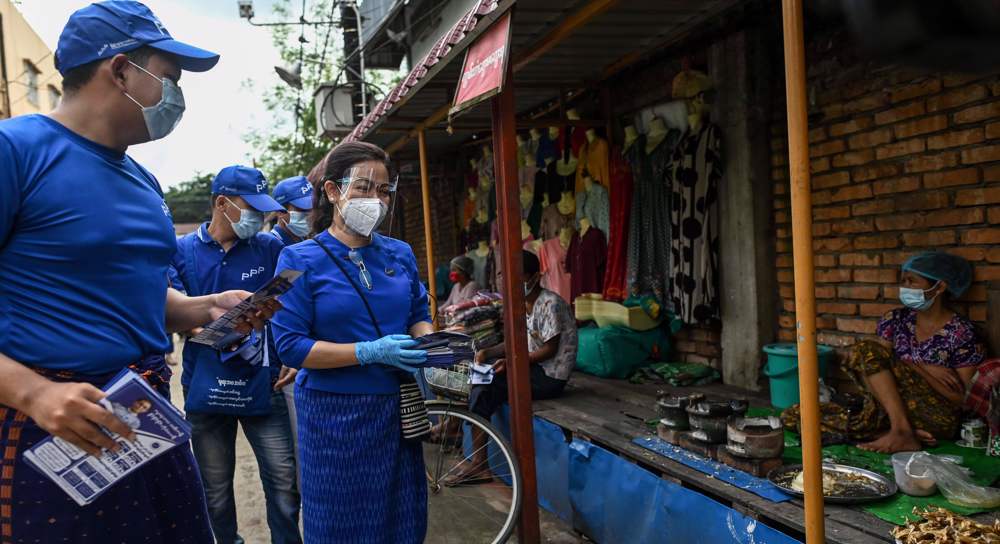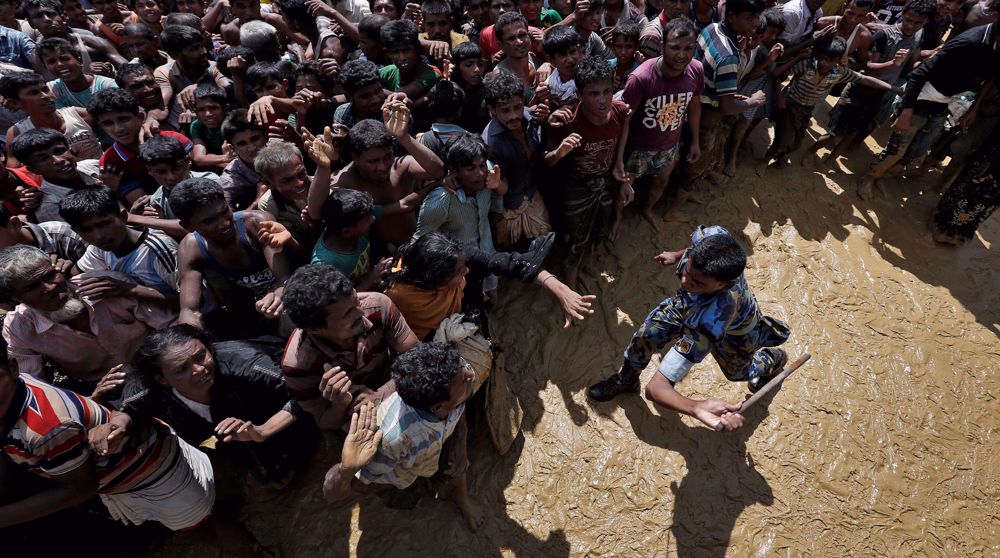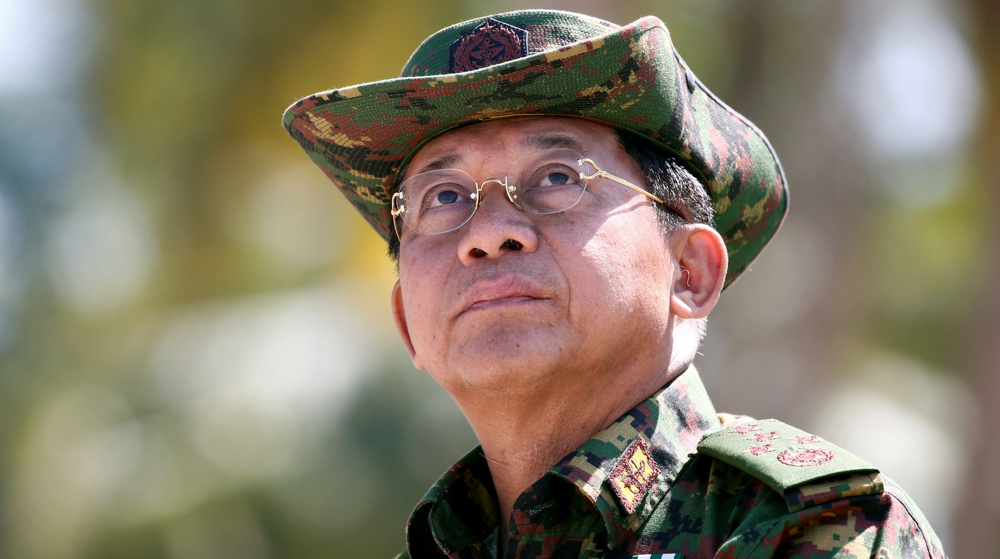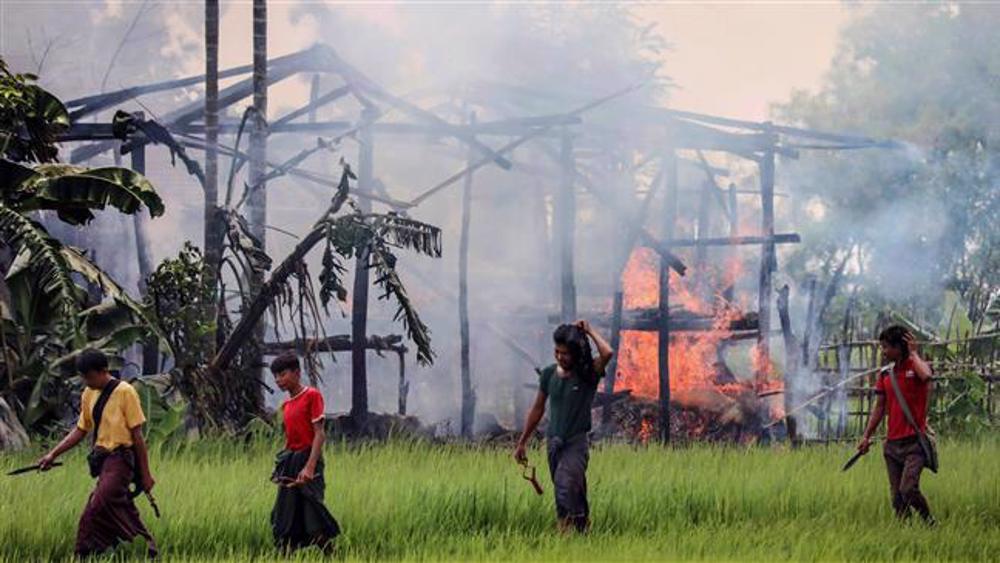Amnesty report highlights Myanmar military’s disregard for civilian suffering
Amnesty International has accused Myanmar’s army of human rights abuses against civilians in the states of Chin and Rakhine under the pretext of fighting an armed group called the Arakan Army.
“The Myanmar military’s utter disregard for civilian suffering grows more shocking and brazen by the day,” the prominent rights group said in a report published on Monday about the dire circumstances in Myanmar’s state of Rakhine.
The United Nations Security Council, the report demands, must urgently refer the situation in Myanmar to the International Criminal Court (ICC).
Amnesty says first-hand testimonies, images and video evidence obtained prove the military’s disregard for civilian suffering in areas at the epicenter of fighting with the Arakan Army.
Several incidents involving civilians injured or killed by landmines and bombardments have been reported in the states of Rakhine and Chin in recent weeks.
State troops have shelled settlements, leaving dozens of people dead, while rural homes and businesses have been burnt to the ground, the UK-based rights group said in its report.
The number of civilians already killed since December 2018 in the conflict in Rakhine and Chin stands at “289, with 641 injured.”
The real figure is almost certainly much higher.
Analysis of satellite images shows some 120 structures in the region have been burnt to the ground, according to Amnesty.
Ming Yu Hah, Amnesty’s deputy regional director for campaigns, said, “There are no signs of the conflict abating – and civilians continue to bear the brunt.”
“The international community must raise the alarm about the situation in Rakhine State now, or face questions later about why they failed to act – again.”
Rakhine was the scene of an organized deadly crackdown on Muslims by the military and Buddhist mobs. Thousands were killed and some 800,000 Rohingya Muslims fled to neighboring Bangladesh, where they currently live in camps in squalid conditions.
Last year, a UN fact-finding mission said the campaign against the Rohingya was orchestrated with “genocidal intent,” and urged charging the army chief and five other generals with the “gravest crimes under international law.”
Myanmar’s troops are currently engaged in fighting with ethnic rebels in Rakhine and Chin.
Clashes between government troops and the Arakan Army (AA), a Buddhist rebel group calling for greater autonomy for Rakhine, have added a new dimension to Rakhine’s trouble.
Myanmar has not signed up to the ICC but the court ruled last year that it had jurisdiction over crimes against the Rohingya minority because Bangladesh, where many Rohingya survivors are now refugees, is a member.
The Gambia, acting on behalf of the 57-nation Organization of Islamic Cooperation (OIC), has also launched a separate case at the International Court of Justice (ICJ), the UN’s top court. Both the Gambia and Myanmar are signatories to the 1948 Genocide Convention, which compels all signatory states to prevent and punish the crime of genocide.
IRGC says Iran’s power exceeds borders, warns enemies to adjust themselves
Dozens detained, several wounded in Israeli raids in West Bank
‘Ethnic cleansing’: Hamas blasts Israeli attacks on Gaza hospital amid intl. silence
Saudi delegation meets HTS leader at presidential palace in Damascus
Relentless Israeli ceasefire violations justify need for self-defense: Lebanese MP
Tel Aviv tells Damascus Israeli forces will remain in occupied territory: Report
Dec. 22: ‘Axis of Resistance’ operations against Israeli occupation
‘Abhorrent’: Oxfam says only 12 trucks delivered aid in North Gaza since Oct.

















 This makes it easy to access the Press TV website
This makes it easy to access the Press TV website